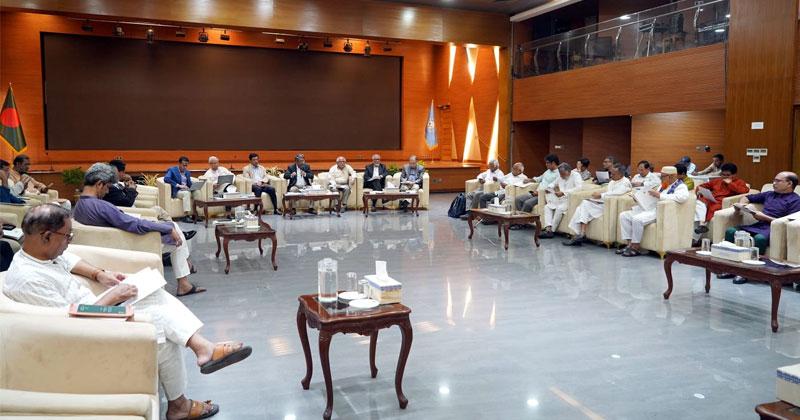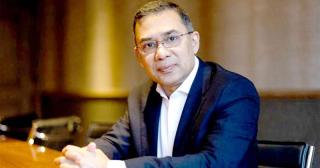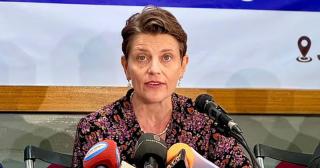
BNP on Tuesday said it wants only the national election to be held under a non-party caretaker government and supports the 90-day tenure for such a non-party election-time government.
"Our party does not want local government elections to be held under a caretaker government," BNP Standing Committee member Salahuddin Ahmed told reporters during the lunch break of Tuesday's discussion of the second phase of talks with the National Consensus Commission at the Foreign Service Academy.
"BNP thinks that the tenure of the caretaker government should not exceed three months, although the Commission has proposed four months," he said.
Regarding Article 70 of the Constitution, Salahuddin said BNP has proposed that MPs be allowed to vote beyond party lines except on matters related to vote of no confidence, finance bill, constitutional amendment and the issues concerning national security.
"If a wartime situation arises, MPs should be able to vote on it (national security issues). This needs to be included in Article 70," he said.
The BNP leader also mentioned that BNP disagrees with the proposal that all parliamentary standing committees be headed by the opposition MPs.
"Some committees may be led by the opposition MPs, but making all committee heads from the opposition is not a practical proposal," said the BNP leader.
Tuesday's session of the second round of talks began at 11am with Commission Chairman Prof Ali Riaz in the chair. Nearly 30 parties, including BNP, Jamaat, and the National Citizen Party (NCP), joined Tuesday's session.
On Monday, Chief Adviser and Commission Chairman Prof Muhammad Yunus opened the second phase of the dialogue.
The Consensus Commission started its first round of talks with political parties on March 20 to forge a national consensus on state reform initiatives undertaken by the interim government.
The Commission held talks with 33 parties and alliances including BNP, Jamaat and NCP before concluding the first round of dialogues on May 19.
Formed on February 15, 2025, under the leadership of Chief Adviser Prof Muhammad Yunus, the Commission was tasked with shaping a unified national stance on critical reforms.














